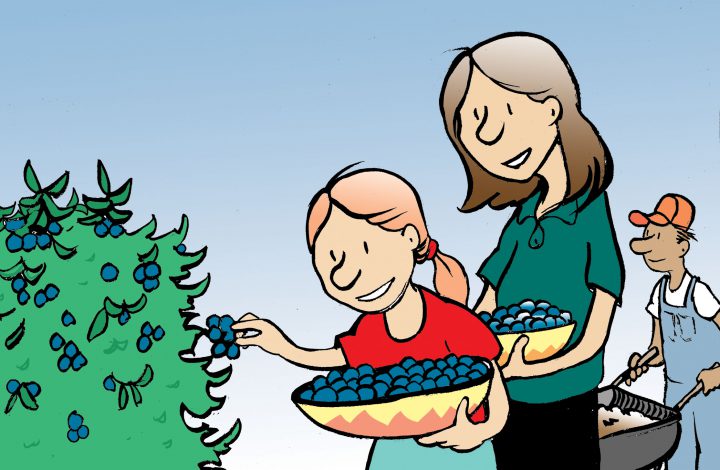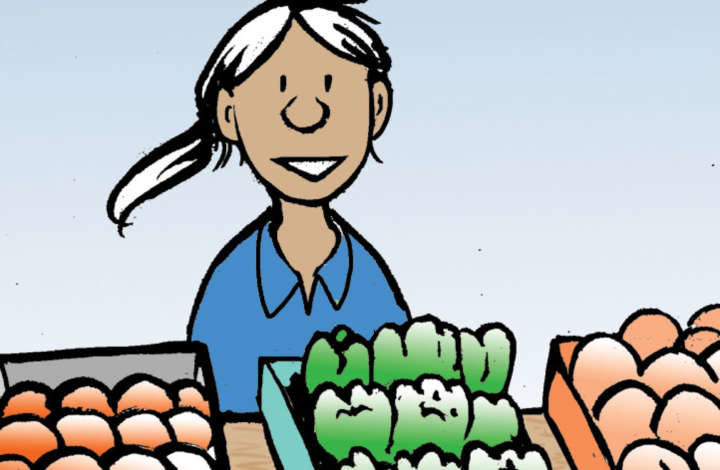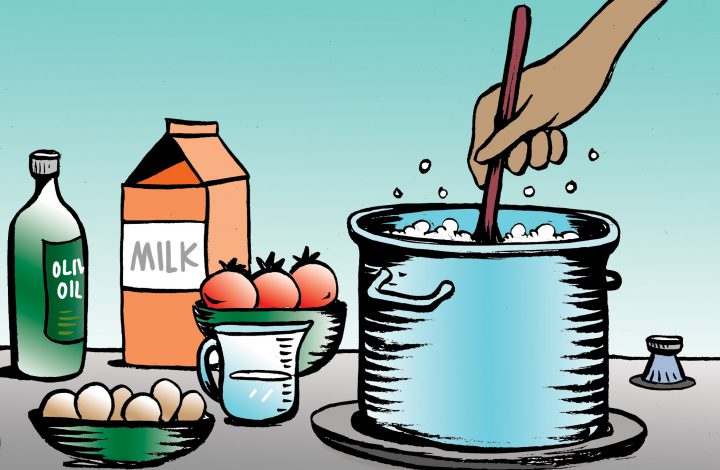Agritourism
In this guide
- Florida Agritourism Laws
- Agritourism Activities
- Popular Agritourism Activities on Florida Farms
- Marketing Agritourism Activities
- Agritourism and Your Farmers Market Business
Agritourism (agriculture + tourism) is a great way to promote farm products, earn income, and build lasting relationships with farmers market customers. Agritourism is an agricultural-related activity on a farm, ranch or working forest that allows members of the general public to view or participate. While agritourism is a relatively new industry in the state of Florida, a growing number of Florida farmers are beginning to explore new ways to integrate tourism-based activities on the farm. This guide provides an overview of state laws governing agritourism operations in Florida, identifies the requirements to qualify as an agritourism operation under Florida law, provides recommendations for potential agritourism activities, and suggests a few marketing strategies to promote agritourism on Florida farms.
In order to promote agritourism in the Florida tourism economy, the State of Florida passed a series of laws designed to protect farm operations engaging in agritourism. Florida Legislature began with a ‘limited liability’ statute followed by clarifications on agritourism activities and protections from local rules against agritourism.
In 2013, Florida Statute (F.S. 570.96) reduced liability for farms engaging in agritourism; this means that a customer or visitor is limited in their ability to sue or hold a farmer liable for accidents or incidents that may occur while visiting a farm. The law requires two conditions for limited liability in agritourism, both of which are intended to protect the public and the agritourism operator.
The limited liability law was designed to promote agritourism in Florida by providing protection to farmers who are hesitant to embark in agritourism out of the fear of being sued by someone who has been injured while visiting the farm. This law acknowledges the inherent risks associated with agricultural production and leaves it to the farm visitor to assume those risks. While the limited liability law offers some protections, it does not protect the farmer from accidents that result from gross negligence (irresponsibility or reckless behavior) or malice (intentional harm of a visitor) by a farmer or farm employee. Therefore, the limited liability law should not be considered a substitute for farm liability insurance which can provide additional financial protections for the agritourism operator, the property and the business. The industry standard is a minimum policy of $1 million dollars coverage for any agritourism operation. Whenever possible, the agritourism operator should have visitors sign “hold harmless agreements” onsite to document acknowledgement of the limited liability as well as “participant waivers” which are usually signed by parents of minors to release agritourism operators from responsibility for injury to their children.
In addition to limiting liability, Florida Statute (F.S. 570.96) was revised in 2016 to provide additional protections by preventing local governments from creating new laws that limit agritourism on lands classified as agricultural and also from enforcing existing laws that affect agritourism. The law stipulates that:
“Except as otherwise provided for in this section, and notwithstanding any other provision of law, a local government may not adopt or enforce a local ordinance, regulation, rule, or policy that prohibits, restricts, regulates, or otherwise limits an agritourism activity on land classified as agricultural land as described in Florida Statute 193.461.”
It is important to note that this law protects agritourism on bonafide farms, and does not pertain to agritourism activities on lands that are not designated as agricultural. This makes it essential to pursue agricultural designation (Ag Exemption) prior to integrating agritourism activities into the farm operation. The revision also included language to describe agritourism and expanded the types of activities that qualify as agritourism.
Protections for agritourism requires a clear definition of agritourism as well as the activities that are considered agritourism. According to Florida statute 570.85-570.89, the term “Agritourism activity” means; ‘any agricultural related activity consistent with a bona fide farm, livestock operation, or ranch or in a working forest which allows members of the general public, for recreational, entertainment, or educational purposes, to view or enjoy activities, including farming, ranching, historical, cultural, civic, ceremonial, training and exhibition, or harvest- your-own activities and attractions. An agritourism activity does not include the construction of new or additional structures or facilities intended primarily to house, shelter, transport, or otherwise accommodate members of the general public. An activity is an agritourism activity regardless of whether the participant paid to participate in the activity.’
This definition allows a broad spectrum of activities to qualify as agritourism such as on-farm weddings, baptisms, and festivals. It also clarifies that a farm visitor does not need to pay or engage in an activity to be considered a participant; simply visiting the farm and viewing the farm is considered agritourism under the law.
The broad spectrum of recognized agritourism activities in Florida law generates a wide range of possibilities for farm-operators to integrate agritourism into farm operations.
Farm tours provide visitors with a ‘behind the scenes’ view of what it takes to produce the food they eat. Tours are a great opportunity to establish a relationship with farmers market customers while Farm tours are a great opportunity to establish a relationship with farmers market customers. Photo by Patrick Fore offering customers an opportunity to authenticate the ‘local’ origins of the food they buy at the market.
Farm to table dinners offer visitors a unique dining experience to consume food where it was produced with the people who produced it. Some farmers choose to partner with a local chef or restaurant to prepare a meal using food produced on the farm. By selling tickets in advance, farmers can prepare the meal according to the number of attendees. On-farm preparation requires a certified kitchen in the State of Florida, and a growing number of farms are including certified kitchens on the farm for processing produce and hosting dinners.
Classes & workshops provide participants with the opportunity for a unique learning experience by engaging in agricultural production. Participants may not only be acquiring one of the broad range of skills and talents that go into farming, but they may also leave with a greater appreciation of the labor invested in farm production.
Ceremonies and festivals provide natural and peaceful outdoor settings for meaningful social experiences such as weddings, baptisms, and birthday parties.
Agritainment provides natural and spacious outdoor settings for community events such as festivals, concerts, and egg hunts.
U-pick: allows visitors to participate in harvesting their own crop during season in strawberry fields, blueberry fields, orchards, pumpkin patches, vineyards, and other food plots that are easy to pluck without tools.
Bed & breakfast & camping offers unique hospitality experiences for out-of-town travelers or community residents seeking a temporary get-away.
WOOFING: is an international organization connecting people who want to live and learn on organic farms and smallholding with farmers who want to share their lifestyles, teach new skills, and welcome volunteer help. The program attracts international participants. For more information, visit the website at https://wwoofinternational.org/
Mazes, hay rides and nature trails: create entertainment opportunities for visitors to explore together seasonally or year-round.
Horseback riding & petting zoos: create interactive experiences for visitors to encounter animals and livestock by viewing, touching, feeding, and/or riding.
Craft shops generate additional income for farm operators while providing visitors with unique souvenirs.
Picnics & field trips offer one-day excursions for small groups such as children’s school field trips, employees in corporate team-building experiences, and church members in a group outing.
Before incorporating agritourism into farm operations, it is important to identify a specific agritourism activity, determine the time and labor costs, and evaluate the pros and cons of adding the activity to existing farm operations. If the activity seems feasible and lucrative, the next step is to develop a marketing strategy to recruit participants.
A good marketing strategy should recruit enough participants to at least cover the costs of hosting an agritourism activity. There are a wide variety of general marketing resources available online and this section will cover marketing specific to agritourism. Producers selling at a farmers market have the advantage of engaging directly with customers and reaching a population of consumers who appreciate local agriculture.
A successful agritourism operation can bring a wide range of benefits to a farm, yet there are additional factors to take into consideration when opening a farm to the public.The following list provides a brief overview of things to consider when embarking on an agritourism operation:
| Visitors are an unknown and uncontrolled factor on the farm, and an open-door policy can make a farmer vulnerable to theft, hostile and unruly behavior (by children as well as adults), and other egregious circumstances. A good agritourism operation will provide a clear set of rules and guidelines, adequate supervision of participants, and clear boundaries within the farm as to which locations are off-limits. Clear posting of farm rules (consider unsupervised children, alcohol, firearms, smoking, controlled substances) can help avoid misunderstandings |
| Health and Emergency Services are key to avoiding a disaster. Many visitors may be venturing into a very unfamiliar environment and most will arrive completely unprepared. Common supplies to have on hand include water, a first aid kit, sunscreen, and insect repellent, snake bite kit, ice packs, and other non-prescriptive emergency supplies. Training in CPR is a good idea in any environment as well as quick access to emergency services and printed directions to the nearest hospital |
| A good farm aesthetic is a common expectation among agritourism participants. The farm experience for most Americans is limited to images from the media that usually represent very pretty farms with blooming flowers, cute barns, cut grass, and well-behaved animals. While this is impossible to achieve in real life, it is good practice to remove trash and broken equipment, mow or smooth out walking areas, remove fly-attracting materials where participants will visit, and designate unsightly areas as off-limits to visitors |
| Adequate access to facilities is essential to accommodate visitors. It is very likely that participants will need to use a restroom during a visit or rest in the shade. Working toilets and sinks, as well as resting spots with seating, should be available to all visitors. This makes it important to consider accommodations for elderly visitors or visitors with disabilities by offering wheelchair and walker accessible facilities and walkways if possible. When the agritourism venue or event matures and grows, it may be a good idea to invest in some kind of transportation (such as motorized carts or specialized trailers with seating and safety railing) for visitors with limited or no mobility. Adequate parking is necessary, especially for events with a large turnout. It is important to consider that there may be as many automobiles as attendees |
| Wildlife can be an attraction as well as a hazard. Venomous snakes and spiders are not unusual on a Florida farm, and agritourism operators should inform visitors of the potential risk and have an emergency plan in the unlikely event a visitor is bitten. Much more common are stings from bees or wasps, and insect bite allergies are said to affect about two million Americans |
| Farm food service is subject to Florida food safety regulations. There are no guarantees that the agritourism participant on the weekend is not a food inspector during the week, and an unpermitted food operation may elicit a complaint from a former visitor on the farm. Florida state guidelines provide opportunities for farmers to include food service on the farm through mobile vending permits to easy minimum construction standards for on-farm kitchens. For more information, visit our Regulatory Agencies and Kitchens guides on this website |
| Good communication with neighbors can prevent problems and conflicts. Successful agritourism can bring a crowd, loud noises, leftover trash by visitors, heavy traffic, and obnoxious urbanites – things many people try to avoid by moving into the country. Informing neighbors of events that may impact their privacy and even inviting neighbors to participate free of charge is a great way to demonstrate good neighborly behavior and a good effort to avoid conflicts |
Agritourism provides a wide range of opportunities for Florida farmers market vendors to establish relationships with farmers market customers. Developing an agritourism business begins with becoming informed of Florida agritourism laws and acquiring an agricultural land designation to operate as a ‘bonafide’ farm. A successful agritourism operation begins by collecting information from potential visitors to make an informed decision about the types of activities to include. Smart agritourism development on a farm starts small, builds from experience, and takes a wide range of potential factors into consideration. Thoughtful planning and practice can create additional on-farm income, positive experiences for visitors, and lasting relationships with farmers market customers. For more information on topics related to integrating agritourism in your farmers’ market business, visit the Business Permits and Business Plans guides on this website.

Tourism is the biggest part of Florida’s economy, and Florida farmers are finding opportunities to increase income by welcoming tourists to their farms and ranches

Information and links for organizations advocating for and providing resources to the farmers' market community.

Find out about potential grants for your farm and farmers market
Find Grants
Find out about opportunities at markets across the state including market manager positions and open calls for vendor applications to markets
Check out Opportunities
Find recipes that use commonly found, seasonal items from your farmers market!
Find Recipes